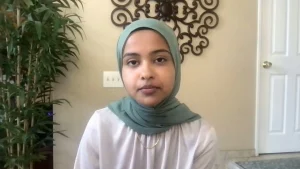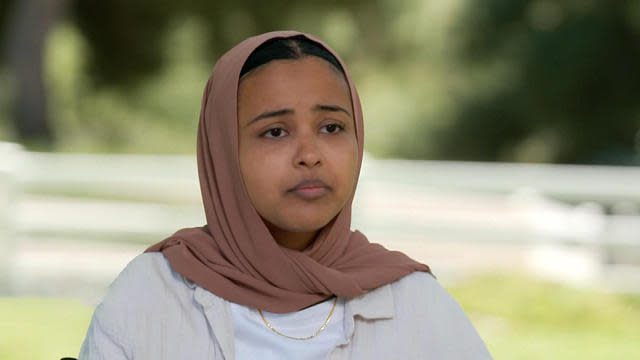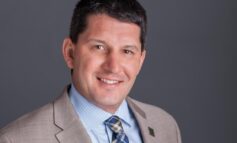The University of Southern California canceled the graduation speech from this year’s valedictorian, Asna Tabassum, a biomedical engineering major and first-generation American of South Asian descent.
According to reports, the school said this decision was made due to security concerns because of warnings of a plan to disrupt the ceremony that came from emails and other electronic communications. One of them targeted Tabassum, a Muslim student who has been vocal regarding her support for Palestinians.
Andrew T. Guzman, provost and senior vice president for academic affairs for USC, shared a statement regarding this decision. Part of it reads:
“Over the past several days, discussion related to the selection of our valedictorian has taken on an alarming tenor. The intensity of feelings, fueled by both social media and the ongoing conflict in the Middle East, has grown to include many voices outside of U.S.C. and has escalated to the point of creating substantial risks relating to security and disruption at the commencement.”
On Tuesday, the New York Times reported that the institution declined to share more details of the warnings and where they were coming from “or whether they were under criminal investigation.”
It was also reported that two pro-Israeli groups on campus filed complaints against the selection of Tabassum, citing her social media support for Palestinians.
Tabassum also released a statement regarding the decision:
“I am both shocked by this decision and profoundly disappointed that the university is succumbing to a campaign of hate meant to silence my voice. I am not surprised by those who attempt to propagate hatred. I am surprised that my own university — my home for four years — has abandoned me.”

A screenshot of Asna Tabassum’s recorded interview with ABC News. Credit: ABC News
In a recorded interview with ABC News, Tabassum said the university gave her no details about the safety concerns or security threats. Questions arose regarding the post she had shared, some calling it “anti-Semitic” because of its nuances directed at the abolishment of the state of Israel. When asked about this, Tabassum said the very next sentence of the post referred to a “peaceful coexistence between Arabs and Jews.”
“I think it points to what I’ve been saying since the beginning of this issue, which is that I’m committed to human equality and to human rights,” she said. “And so this link, I encourage people to look at it in its entirety rather than looking at one specific example. For example, it’s discussing both the one-state and the two-state solution; it’s discussing the history of the region and I think that there’s important information for people to understand on their own and come to their own conclusions about.
“When it comes to abolishing the state of Israel, I will say I want to abolish apartheid,” she added.
When the interviewer, Phil Lipof, was trying to confirm whether she would advocate for a two-state solution, she said, “No I’m not necessarily committing to a one-state or a two-state solution; I’m simply saying that this information on the website offered information from multiple perspectives, and so my endorsing of any one single perspective is unfounded.”
When asked if she felt that this decision breached her freedom of speech, she said that the chance to give a speech at commencement is, “a privilege, it’s not necessarily free speech.
“But I will say I expressed my views and I expressed my views online and the hatred that was leveled at me because of myself expressing these views I think ultimately was part of the reason why USC caved in,” she said. “And so whether free speech in its most technical terms is being debated here is maybe up for debate, but I will say speech is an issue and speech is being stifled.”
Regarding the content of her speech and what she planned to speak about, she said that she wanted it to be one of hope, responsibility and unification, one that would be a driving force for her peers to elicit change, one that would be a means of encouragement to learn about the world.
“Taking in my role as valedictorian, I wanted to be a unifying voice for all students and that was preemptively taken away from me,” she said.
According to the AP News, university officials told her Monday that there were resources to take appropriate safety measures, “but they were concerned about their image,” she said.
“Anti-Muslim and anti-Palestinian voices have subjected me to a campaign of racist hatred because of my uncompromising belief in human rights for all,” she added.
Guzman said the decision to cancel the speech was solely based on safety, after discussing with the “expert campus safety team.”
According to an AP News report, Erroll G. Southers, USC’s associate senior vice president of safety and risk assurance, is an expert in school violence prevention. He is also a former FBI agent and president of the Los Angeles Police Commission, a civilian board that oversees the police department.
“To be clear: this decision has nothing to do with freedom of speech,” a portion of Guzman’s statement read. “There is no free-speech entitlement to speak at a commencement. The issue here is how best to maintain campus security and safety, period.”
Several USC students made their disappointment known.
Mohammed Zain Shafi Khan said Tabassum, “embodies what it means to be a valedictorian for USC, and to take that away from her, at least the honor that comes attached to it, is extremely disappointing because this is her moment to enjoy.”
Isabella Griggs said “there was no inkling” of Tabassum’s words causing or doing any harm, according to the AP News.
“And she’s talking about issues that are important to not only our university and to students, but to the world,” Griggs added.
University campuses have been breeding grounds for many protests over the violence ensuing in Gaza. Protests have continued to erupt across the world ever since the Hamas attack on Israel on October 7 that killed 1,200 people. According to the Gaza Health Ministry, Israel has killed 33,800 Palestinians since then.
The announcement regarding the cancellation of the speech was made the same day as several pro-Palestinian protests. Pro-Palestinians demonstrators blocked roadways, demanding an immediate ceasefire, in various states, including Illinois, California and New York, as well as areas of the Pacific Northwest, according to an AP News report.






Leave a Reply